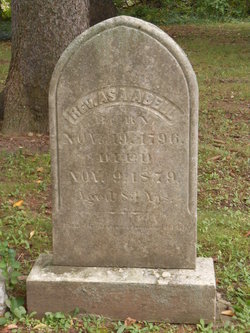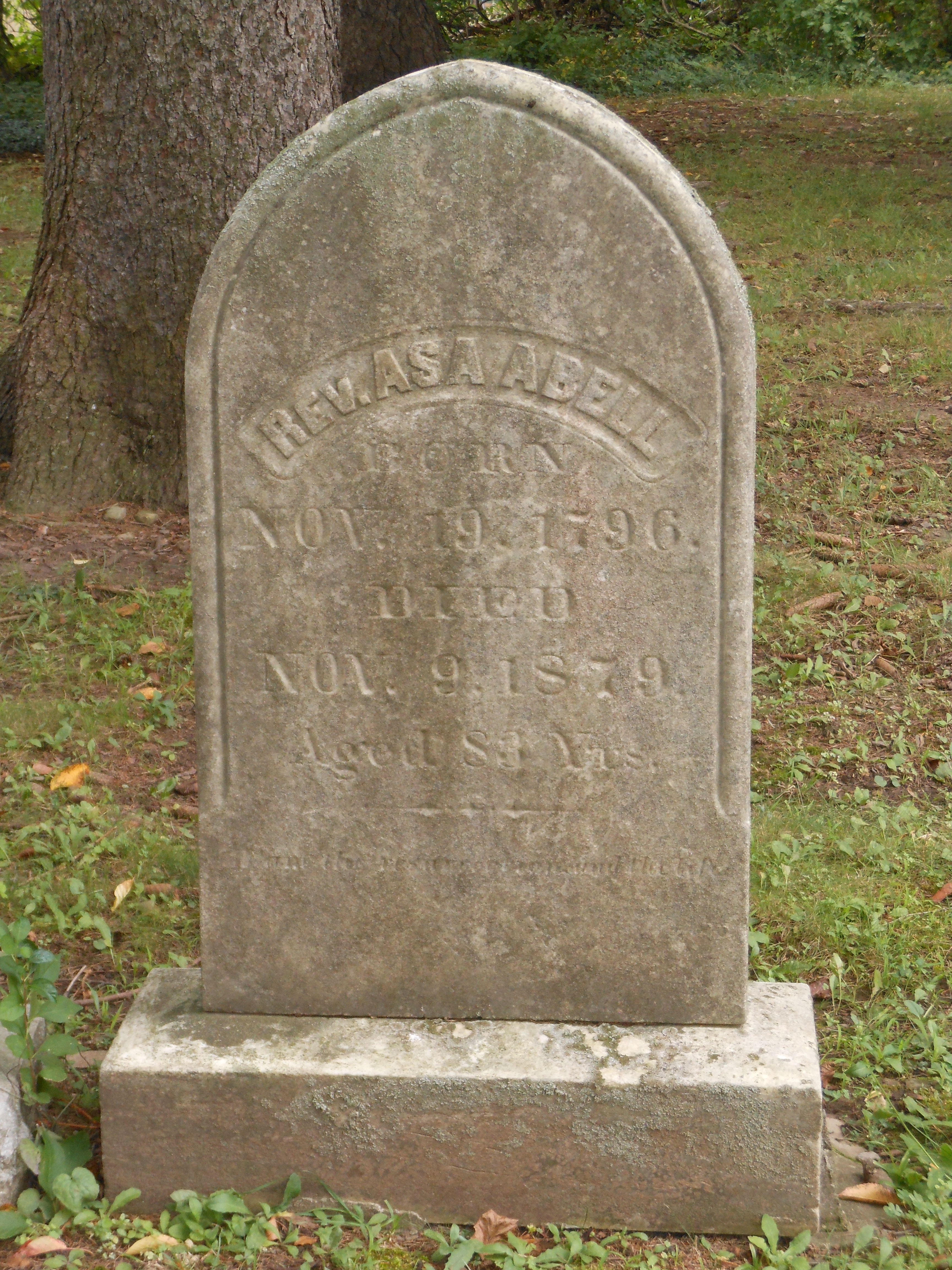Methodism In Buffalo: From Its Origins To The Close Of 1892, Pgs. 27-28
"Rev. Asa Abell, in 1825 was a young man of good abilities and unswerving devotion to his work. His name appears as pastor for this year, and subsequently as Presiding Elder of the Buffalo District for three years, commencing with 1829. Late in life he withdrew from the Methodist Episcopal Church and united with the Free Methodists. Whatever may be thought of his wisdom in abandoning a church with which he had been identified in his early years and active life, no one ever questioned the integrity of his character or the purity of his motives. He died having passed his eightieth year, honored by all."
Free Methodist Historical Society
Winter 2004, Volume 4, Number 2
B. T. Roberts' Supporting Cast
Rev. Asa Abell (1796-1879)
"He was an ordained member of the Methodist Episcopal Church since 1821; he had served as a presiding elder for eighteen years; and four times in succession he had been elected and served as a member of the General Conference. His life, his ministry, and his heart belonged to the Methodist Episcopal Church. Yet in time, he could not continue to be part of what he saw to be an injustice and an unholy division in the church that he served and loved.
Accused of being part of the "Nazarite Association," Asa Abell was one of seventeen along with B. T. Roberts who in 1857 formally responded to the charge in a paper, stating the charges to be unjust, iniquitous, slanderous and false." For Abell, this was the beginning of the end of a long and cherished relationship and the beginning of a new relationship with a church body that was yet to be born.
In an attempt to explain Abell's support of B. T. Roberts and the others who were expelled from the Methodist Episcopal Church, historian F. W. Conable suggested that Abell never intended to be a fanatic, but had fallen under the influence of the fanatics. However, Abell's position might better be explained by his own clear statement of a "distinct profession of the blessing of entire sanctification" that occurred at the Byron Camp Meeting of 1851, and his belief that holiness was a genuine work of God that had falsely been called fanaticism. Humble of heart and desiring to do right in the eyes of the Lord, he was compelled to separate from the old and to join with the new.
Abell's leadership ability and the value of his experience were immediately recognized. His first and all subsequent assignments were in the role of district elder, and when he was three times elected delegate to General Conference. Part of his contribution to the newly formed church was to serve along with Loren Stiles (the subject of the second article in this series) on the Committee to Establish a Denominational School -- thus helping Roberts cement the new denomination's commitment to education. The founding of schools that would become Christian colleges has become one of the greatest gifts of the Free Methodist Church to American society.
Written by Charles Cannon, Roberts Wesleyan College
Methodism In Buffalo: From Its Origins To The Close Of 1892, Pgs. 27-28
"Rev. Asa Abell, in 1825 was a young man of good abilities and unswerving devotion to his work. His name appears as pastor for this year, and subsequently as Presiding Elder of the Buffalo District for three years, commencing with 1829. Late in life he withdrew from the Methodist Episcopal Church and united with the Free Methodists. Whatever may be thought of his wisdom in abandoning a church with which he had been identified in his early years and active life, no one ever questioned the integrity of his character or the purity of his motives. He died having passed his eightieth year, honored by all."
Free Methodist Historical Society
Winter 2004, Volume 4, Number 2
B. T. Roberts' Supporting Cast
Rev. Asa Abell (1796-1879)
"He was an ordained member of the Methodist Episcopal Church since 1821; he had served as a presiding elder for eighteen years; and four times in succession he had been elected and served as a member of the General Conference. His life, his ministry, and his heart belonged to the Methodist Episcopal Church. Yet in time, he could not continue to be part of what he saw to be an injustice and an unholy division in the church that he served and loved.
Accused of being part of the "Nazarite Association," Asa Abell was one of seventeen along with B. T. Roberts who in 1857 formally responded to the charge in a paper, stating the charges to be unjust, iniquitous, slanderous and false." For Abell, this was the beginning of the end of a long and cherished relationship and the beginning of a new relationship with a church body that was yet to be born.
In an attempt to explain Abell's support of B. T. Roberts and the others who were expelled from the Methodist Episcopal Church, historian F. W. Conable suggested that Abell never intended to be a fanatic, but had fallen under the influence of the fanatics. However, Abell's position might better be explained by his own clear statement of a "distinct profession of the blessing of entire sanctification" that occurred at the Byron Camp Meeting of 1851, and his belief that holiness was a genuine work of God that had falsely been called fanaticism. Humble of heart and desiring to do right in the eyes of the Lord, he was compelled to separate from the old and to join with the new.
Abell's leadership ability and the value of his experience were immediately recognized. His first and all subsequent assignments were in the role of district elder, and when he was three times elected delegate to General Conference. Part of his contribution to the newly formed church was to serve along with Loren Stiles (the subject of the second article in this series) on the Committee to Establish a Denominational School -- thus helping Roberts cement the new denomination's commitment to education. The founding of schools that would become Christian colleges has become one of the greatest gifts of the Free Methodist Church to American society.
Written by Charles Cannon, Roberts Wesleyan College
Inscription
Rev. Asa Abell
Born Nov. 19, 1796
Died
Nov 9, 1879
Aged 82y 11m 10d
Family Members
Advertisement
Explore more
Sponsored by Ancestry
Advertisement













